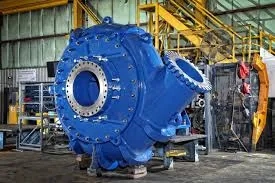English
- Afrikaans
- Albanian
- Amharic
- Arabic
- Armenian
- Azerbaijani
- Basque
- Belarusian
- Bengali
- Bosnian
- Bulgarian
- Catalan
- Cebuano
- Corsican
- Croatian
- Czech
- Danish
- Dutch
- English
- Esperanto
- Estonian
- Finnish
- French
- Frisian
- Galician
- Georgian
- German
- Greek
- Gujarati
- Haitian Creole
- hausa
- hawaiian
- Hebrew
- Hindi
- Miao
- Hungarian
- Icelandic
- igbo
- Indonesian
- irish
- Italian
- Japanese
- Javanese
- Kannada
- kazakh
- Khmer
- Rwandese
- Korean
- Kurdish
- Kyrgyz
- Lao
- Latin
- Latvian
- Lithuanian
- Luxembourgish
- Macedonian
- Malgashi
- Malay
- Malayalam
- Maltese
- Maori
- Marathi
- Mongolian
- Myanmar
- Nepali
- Norwegian
- Norwegian
- Occitan
- Pashto
- Persian
- Polish
- Portuguese
- Punjabi
- Romanian
- Russian
- Samoan
- Scottish Gaelic
- Serbian
- Sesotho
- Shona
- Sindhi
- Sinhala
- Slovak
- Slovenian
- Somali
- Spanish
- Sundanese
- Swahili
- Swedish
- Tagalog
- Tajik
- Tamil
- Tatar
- Telugu
- Thai
- Turkish
- Turkmen
- Ukrainian
- Urdu
- Uighur
- Uzbek
- Vietnamese
- Welsh
- Bantu
- Yiddish
- Yoruba
- Zulu
Telephone: +86 13120555503
Email: frank@cypump.com
Aug . 19, 2024 17:38 Back to list
Choosing the Right Sump Pump for Your Sewer System Needs
Understanding Sewer Sump Pumps Essential Tools for Home Protection
Sewer sump pumps are critical devices designed to protect homes from flooding and sewage backup, especially in areas prone to heavy rains or where the natural water table is high. Understanding how these pumps operate, their benefits, and their maintenance requirements can help homeowners make informed decisions about their installation and upkeep.
What Is a Sewer Sump Pump?
A sewer sump pump is typically installed in a basement or a low area of a home where water tends to accumulate. It is designed to pump out groundwater or sewage that collects in a sump pit. The pump activates when the water level rises to a certain point, mechanically pushing the water out of the home and into the municipal sewer system or a designated drainage area. These pumps are particularly important in homes that have basements or are located in flood-prone regions where heavy rainfall can lead to water intrusion.
The Importance of Sewer Sump Pumps
The primary purpose of a sewer sump pump is to prevent basement flooding and sewage overflow, both of which can cause extensive damage to a home and pose health risks. When water gathers in a sump pit, it can damage flooring, walls, and personal belongings. Moreover, sewage backups can lead to unsanitary conditions, potentially resulting in harmful bacteria and pathogens being introduced into the living space. By installing a sewer sump pump, homeowners can significantly reduce the risk of these issues, ensuring a safer and dryer environment.
Benefits of Using Sewer Sump Pumps
1. Flood Prevention The most significant advantage of a sewer sump pump is its ability to prevent flooding. During heavy rainfall or storm events, a properly functioning pump can evacuate excess water, protecting your home’s foundation and interior spaces.
2. Sewage Backup Management In the event of a sewage backup, a sump pump can help manage and redirect sewage away from the home, minimizing potential damage and health hazards associated with contaminated water.
sewer sump pump

3. Increased Property Value Homes equipped with sump pumps are generally more appealing to buyers, particularly in flood-prone areas. Having a functional drainage system can enhance property value and provide peace of mind for prospective homeowners.
4. Reduced Maintenance Costs By preventing flooding and sewage backups, sump pumps can help homeowners avoid costly repairs and the need for mold remediation that can arise from water damage.
Maintenance of Sewer Sump Pumps
Although sewer sump pumps are designed for durability, regular maintenance is essential to ensure their reliability. Here are some key maintenance tips
1. Routine Inspections Regularly check the pump system to ensure it is functioning correctly. Look for any signs of rust, wear, or unusual noises that could indicate a problem.
2. Test the Pump Pour water into the sump pit to ensure the pump activates and discharges water effectively. This should be done at least once a year.
3. Clean the Sump Pit Remove any debris or sediment from the sump pit to prevent the pump from getting clogged, which can hinder its operation.
4. Check the Power Supply Ensure that the pump is connected to a reliable power source. Considering the installation of a backup power source, like a battery backup, can also ensure continued operation during power outages.
In conclusion, sewer sump pumps are invaluable tools for homeowners looking to protect their property from flooding and sewage issues. By understanding their function, benefits, and maintenance, you can ensure that your home remains safe and dry, safeguarding one of your most significant investments.
-
ISG Series Vertical Pipeline Pump - Chi Yuan Pumps Co., LTD.|Advanced Hydraulic Design&Energy-Efficient Solutions
NewsJul.30,2025
-
ISG Series Vertical Pipeline Pump - Chi Yuan Pumps Co., LTD.
NewsJul.30,2025
-
ISG Series Vertical Pipeline Pump - Chi Yuan Pumps Co., LTD.|energy-efficient fluid handling&industrial durability
NewsJul.30,2025
-
ISG Series Vertical Pipeline Pump - Chi Yuan Pumps | Advanced Engineering&Industrial Efficiency
NewsJul.30,2025
-
ISG Series Pipeline Pump - Chi Yuan Pumps | High Efficiency, Energy Saving
NewsJul.30,2025
-
ISG Series Vertical Pipeline Pump-Chi Yuan Pumps|High Efficiency&Reliable Performance
NewsJul.29,2025










